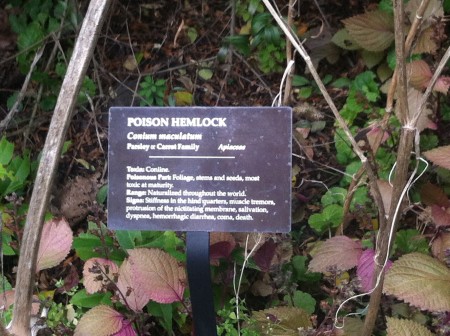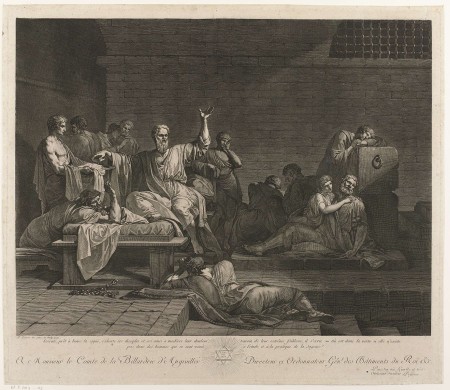 This is poison hemlock, or Conium maculatum. Its leaves look a lot like flat-leaf parsley, don’t they? That similarity was unfortunate for one man, a Scottish tailor named Duncan Gow. In 1845 his children made him a sandwich for his lunch using what they thought was wild parsley. (My warped mind turns straight to–when was the last time all three of my children got together to make ME a sandwich? And would they ever in a million years think to add parsley to it?? But I digress.)
This is poison hemlock, or Conium maculatum. Its leaves look a lot like flat-leaf parsley, don’t they? That similarity was unfortunate for one man, a Scottish tailor named Duncan Gow. In 1845 his children made him a sandwich for his lunch using what they thought was wild parsley. (My warped mind turns straight to–when was the last time all three of my children got together to make ME a sandwich? And would they ever in a million years think to add parsley to it?? But I digress.)
The “wild parsley” turned out to be poison hemlock, and Gow died. His death recalled that of another, more famous person who died by hemlock, the philosopher Socrates (ca 469 – 399 BCE).
Socrates was sentenced to death for refusing to recognize the gods approved by the state, and for “corrupting the youth.” He was ordered to drink poison hemlock. According to an eyewitness account written by Plato, Socrates’s death was a gentle one, surrounded by his devoted followers. After drinking the poison, his feet went numb, and the paralysis slowly crept upward. “His legs grew cold and stiff,” and after that, his respiratory muscles became paralyzed. His mind remained clear to the end, though. His last words were “Crio, we owe Asklepias a rooster. Pay the debt and do not forget it.”
For several centuries, historians had debated whether Plato’s account of Socrates’ death was medically accurate. They didn’t believe that death by hemlock could have been as peaceful as Plato said it was. But Duncan Gow’s symptoms sound remarkably similar to those of Socrates.
So it seems Plato’s account may have been medically accurate.

Not a great picture, sorry, but it was exciting to see actual poison hemlock at the poison plant garden at Cornell University.
